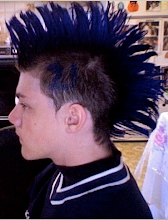1) “It was fifteen minutes before could work myself up to go and humble myself to a nigger–but I done it, and I warn't ever sorry for it afterwards, neither” (98).
After playing the cruel joke of making Jim think that Huck getting lost was all a dream, Huck apologizes to Jim. He does this because he did not think that the joke would hurt Jim as much as it did. Jim was deeply hurt by the joke because Huck is the only friend that Jim has ever had. When Jim feels betrayed by his only friend he is utterly depressed. Huck says that it took him a while to get himself to apologize to Jim, but it was worth it. This shows that Huck is beginning to respect black people more, and realizes that they have feelings too. This is shown again when Huck does not tell the men that were looking for slaves that Jim is black. Huck does not get Jim caught even though he believes it is the ‘right’ thing to do. Jim is even more thankful for this, and their relationship grows stronger when Jim proclaims Huck as his best friend. Huck and Jim’s relationship will have many twists because Huck is torn between telling on Jim, or respecting him as an equal.
2) “Well, then, says I, what's the use you learning to do right, when it's troublesome to do right and it ain't no trouble to do wrong, and the wages is just the same? I was struck. I couldn't answer that. So I reckoned I wouldn't bother no more about it, but after this always do whichever came handiest at the time” (104).
This quote relates to how Huck wishes to deal with the situation regarding Jim’s freedom. As they believe they are approaching Cairo, Huck gets nervous, and Jim gets excited. Huck is nervous that he has done the wrong thing by letting Jim escape. He believes that Ms. Watson would be disappointed in him after all that she has done for him. Huck realizes that if he tells on Jim he will feel worse than if he didn’t, and then Huck gets confused between what is right and what is wrong. Huck decides to do whatever seems most advantageous at the time. This could be a very bad idea to live by, and it could get Huck into a lot of trouble. Huck’s values are askew because he has lived in a society where treating blacks subordinately was culturally accepted. He believes this is ‘right’ because this is how he was raised. He was in a pocket of morality where slavery was acceptable. Now that he has left that pocket he is faced with learning to accept Jim.
Definitions:
1) “Then Tom and Bob went to the sideboard where the decanters was, and mixed a glass of bitters and handed it to him” (118).
decanter: noun- a vessel, usually an ornamental glass or bottle used for holding and serving wine
2) “There was four or five men cavorting around on their horses in the open place before the log store, cussing and yelling, and trying to get at a couple of young chaps” (126).
cavort: verb- to bound or prance about in a sprightly manner

No comments:
Post a Comment